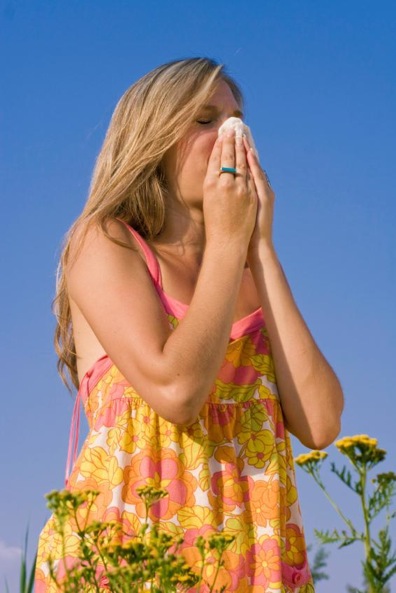Springtime allergies are for the birds (or for someone else anyway…)

Springtime is when birds are busy building their nests and are sitting on their eggs. The flowers are in full bloom and the buds are just starting to break on our grape vines. The rain is usually all done in California by this time of year, but fortunately we are still getting some nice rain to water our crops and refill our aquifers. I know it is making it easy to start a garden because I haven’t had to water it but a few times so far.
For those with allergies, though, this time of year can be tough. It is estimated that over 50 million Americans suffer from serious allergies. I know because I used to sneeze, get watery eyes, a constantly runny nose, and when I was younger, wheezy, so that it was hard for me to breathe freely.
An allergy is the body’s immune system’s inappropriate response to a substance that is not normally harmful. Our immune system is highly effective at identifying foreign invaders and mobilizing the white blood cells to fight them. An allergy occurs when the immune system wrongly identifies a nontoxic substance as an invader which creates more damage to the body than the invader. The allergic response can then become a disease in itself. Do you experience any of the following:
- coughing
- wheezing
- nasal congestion
- itching
- headaches
- fatigue
- hives or other skin rashes
- shortness of breath
Some of the most common allergens are:
- pollen
- dust
- molds (those that live in dark, damp places as well as in cheese & fertilizers)
- certain metals
- lanolin
- dust mites
- some food additives
- common drugs
- animal hair
- insect venom
- animal dander
- some cosmetics
- chemicals (go figure!) found in soaps, washing powder, cleaning supplies, etc
Foods can also provoke allergic symptoms and can add to the immune overload. Allergies can affect your quality of life, and the medications that many take to alleviate symptoms create symptoms of their own. Allergies can lead to secondary conditions like ear and sinus infections, sometimes becoming chronic.
What can you do to help alleviate allergy symptoms? If you have seasonal allergies, then you want to build immune function and adrenal strength. This means:
- Getting enough sleep for immune and adrenal health
- Focusing on an anti-inflammatory diet, one high in fruits and vegetables and low in toxins (pesticides/herbicides/junk foods)
- Dramatically reduce sugar intake
- Avoiding foods you know you are allergic to and environmental toxins
- Using Vitamin C (buffered), 2000mg 3x/day and quercetin, 600mg 3x/day are great antihistamines – use in higher doses (unless pregnant, then only under direct supervision of a health care practitioner). This combination seems to be quite effective in reducing allergy symptoms.
- Trying Bromelain (2,400 GDU/gram), 300mg 3x/day on empty stomach
- Avoiding stimulants such as caffeine that overwork the adrenal glands and liver
- Using a neti pot with a little warm water and sea salt to cleanse your nasal passages – you could do like I do by putting 1/4 tsp sea salt to 8 ounces warm purified water. Hold one nostril closed with fingers and, using a teaspoon, inhale warm salt water into open nostril. Evacuate through mouth. Repeat this several times on each side two times per day.
- Calcium and magnesium to help reduce stress
- Adrenal support – see me for support on this one!
- Check liver health, gut health and check to see if you have any chronic infections.
Give these a try and see what you notice. You may be pleasantly surprised at how good you can feel with the natural, healing approach.

